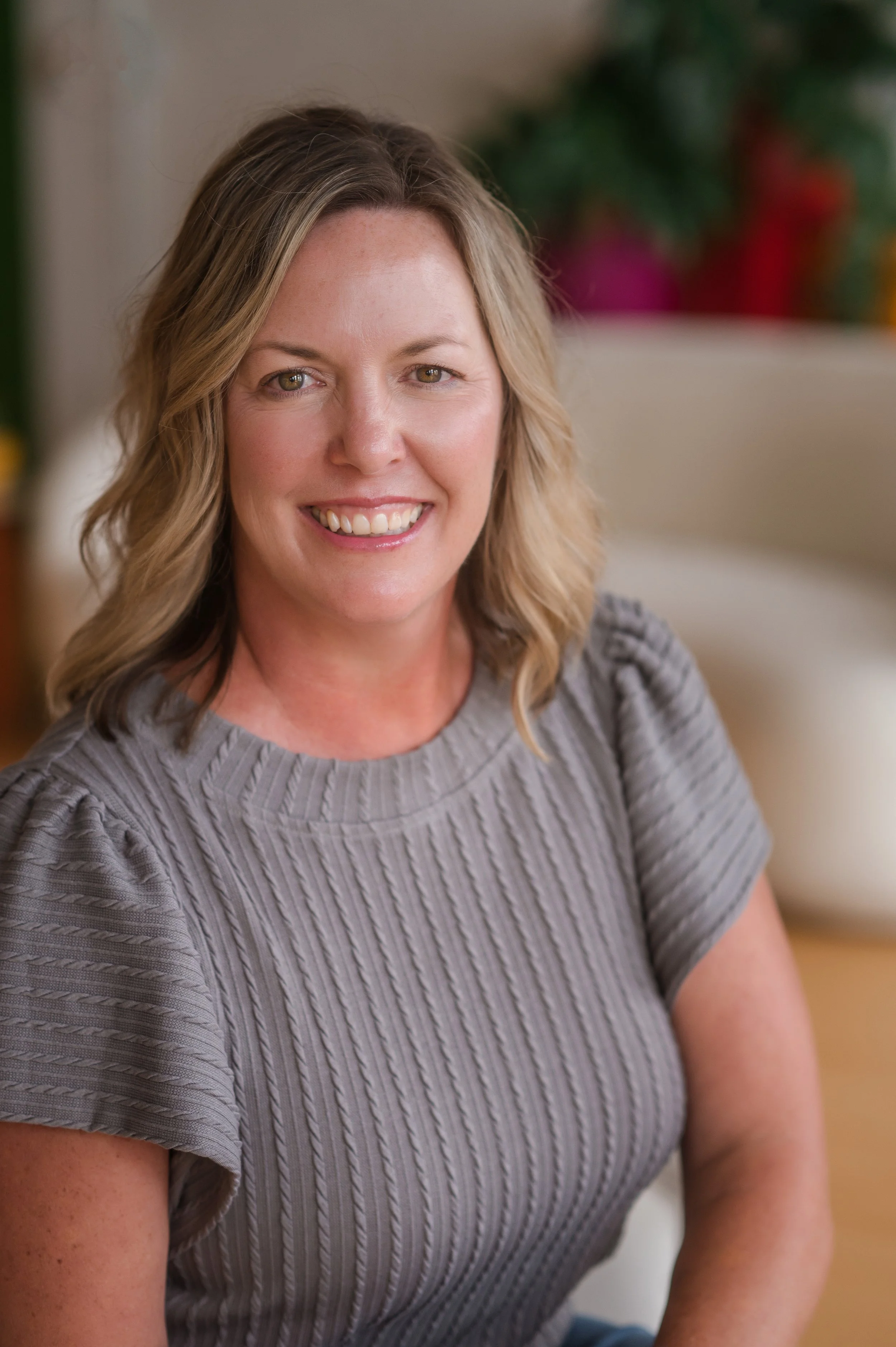Dating (and Remarrying) After Death: The Untold Truth
By Angie Hanson —SBC Member, grief educator, certified grief coach, and the founder of Butterflies + Halos
Dating after loss. Even typing that feels strange, right? It’s one of the most misunderstood, most opinionated topics out there. Everyone seems to have an idea of what’s “right” or “wrong” for the grieving heart — except, often, the griever themselves.
The truth? Society expects grief to be neat, tidy, and linear. If you’re too sad, they worry. If you’re too happy, they worry. Either way, they want to tuck you into a neat little bubble — not to protect you, but because they think they know best (even when they’ve never lost anyone themselves).
But grief doesn’t play by their rules. And neither does love.
The Loneliest Hours
Being widowed is lonely — a loneliness that creeps in when the house goes quiet. After my husband Jack died, I had my daughter Graci, who was six at the time. She filled my days with life, but when bedtime came, the silence was unbearable. From 8:30 until I finally went to bed, I sat in the kind of empty that makes your bones ache.
And as much as I wished Jack could come back, I knew he couldn’t. We are made for companionship. It’s part of being human.
The Judgment (and the Grace)
Here’s what happens when you even think about dating after loss: your radar goes up. You’re hyper-aware of what everyone else might say or think. And oh, do they have opinions.
That’s why it’s so important to surround yourself with people who get it — other widows, widowers, and bereaved parents. They don’t ask questions. They cheer you on. They understand the messiness of it all without judgment.
Please, if you know someone grieving, give them grace. Dating six months in? Okay. Waiting five years? Okay. Never wanting to date again? Also okay. There’s no handbook. Every grief story is unique.
Guilt, Permission, and the Gift of Love
When I met my now-husband, Chantz, about eight months after Jack’s death, my heart lit up in ways it hadn’t for years. But let’s be real: that spark came with guilt.
Was I cheating on Jack? Was I ready? Would people judge me?
Here’s the part most outsiders don’t know: many of us who lose a spouse — especially to an illness like cancer — begin grieving long before the funeral. Jack and I had 16 months of knowing his diagnosis was terminal. We had conversations no one else was part of, including his blessing for me to find love again. That permission was one of his last gifts to me.
So while some people whispered, the majority — including Jack’s parents — supported me and welcomed Chantz into our lives. That support mattered more than words can say.
Chantz’s Side of the Story
Dating a widow wasn’t simple for Chantz, either. He’s told me he felt guilt too — guilt for stepping into a role that belonged to another man, guilt for living a life Jack didn’t get to finish.
But what makes him extraordinary is how he’s never tried to erase Jack. Instead, he helps me honor him. He encourages me to share memories. He’s even close with Jack’s parents. He reminds me daily that grief and love can co-exist.
Dating on Your Own Timeline
So here’s my advice: go by your grief timeline, not society’s. If love feels right, don’t fight it. Don’t let fear of judgment stop you from embracing joy.
Because here’s the truth: feelings can be terrifying when you’ve been drowning in sorrow. Joy feels foreign at first. But joy is meant to be felt. God does not want us to be lonely; He makes room for us to love not once, but sometimes twice (or more).
I’ll always love Jack. And I’m grateful beyond measure for Chantz. Both loves are part of me.
Final Word
Dating after death is messy, complicated, and sacred all at once. If you’re walking this road, remember: you don’t owe anyone an explanation.
Love is patient. Love is kind. (1 Corinthians 13:4–8)
And love is still possible — even after loss.
So go ahead. Feel the freaking feels.
If you’re navigating love after loss, surround yourself with people who understand — grief groups, fellow widows, or trusted friends. And remember: your timeline is yours alone.
Angie Hanson is a grief educator, certified grief coach, and the founder of Butterflies + Halos, a grief-focused stationery and support brand. As a multi-time author, she shares her personal experiences of loss and resilience to inspire others. Angie is a contributing author in Grace & Grit: Stories of Overcoming Life’s Hardest Challenges with Resilience, a faith-based anthology with Hopebooks, and the upcoming Stories of... anthology, where she honors the legacy of her late husband. Through her writing, speaking engagements, and grief coaching, she helps others navigate grief with grace, hope, and a touch of humor.


